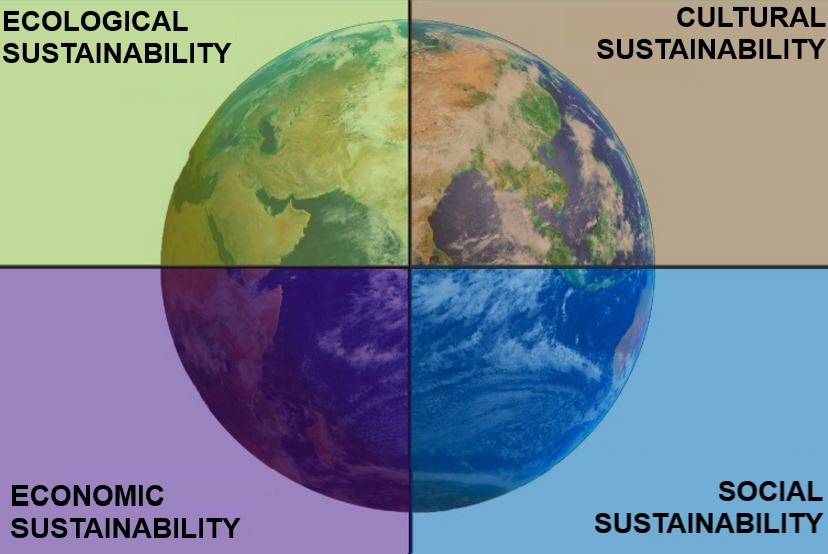20.2 Facets of sustainable development
 The question of whether or not a certain acitivity is sustainable on a long time scale is complex. Because of this, sustainable development is often thought to consist of four distinct facets.
The question of whether or not a certain acitivity is sustainable on a long time scale is complex. Because of this, sustainable development is often thought to consist of four distinct facets.
Ecological sustainability means that human activities cannot damage the natural environment. The use of natural resources should be done in a way that retains the planet's biodiversity. In terms of climate change, humans should not produce more carbon emissions into the atmosphere than the planet's plants can absorb.
Economic sustainability means that the global economy should be developed in a way that makes social and environmental well-being possible on a long time scale. This means that the economy cannot be based on increased consumption or the accumulation of debt. Instead, the economy should be planned with long time scales in mind, so that the well-being of the society is not overlooked.
Ecological and economic sustainability cannot work if people are discontented. People that suffer from poverty, inequality and injustice are not likely to care about biodiversity or political stability. This is why society must be developed in a way that increases the well-being of all of its members. These goals make up the facets of social and cultural sustainability.